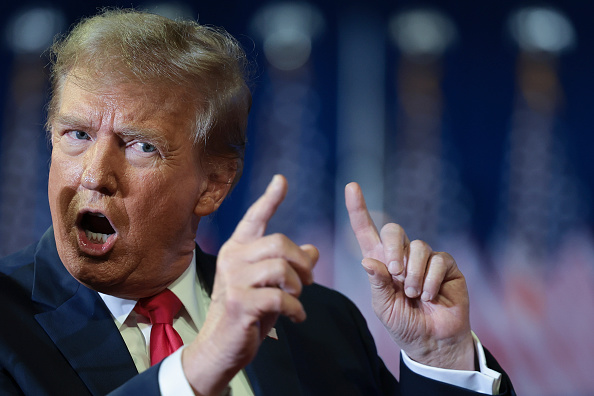In a recent episode of MSNBC‘s The Last Word, Mary Trump, the host of The Mary Trump Show podcast and a vocal critic of Donald Trump, joined forces with Lawrence O’Donnell to dissect the tactics employed by New York Attorney General Letitia James. Their focus? How she masterfully exploits Trump’s vulnerabilities, specifically by taunting him about the potential seizure of his cherished 40 Wall Street.
O’Donnell, delving into the psychological nuances, questioned Mary about James’s uncanny ability to push Trump to the brink. The exchange illuminated the keen awareness that James possesses regarding Trump’s psyche, as she strategically uses references to 40 Wall Street to rattle the former president.
With a hint of intrigue, O’Donnell probed, “Is it your sense that Attorney General James has figured out two things? How to beat Donald Trump in court, and how to drive him absolutely insane with statements like that?” Mary’s response was unequivocal: “Yeah. She has his number, for sure.” It’s a sentiment echoed by many, emphasizing that those who have closely observed Trump’s trajectory in New York recognize the triggers that set him off.
Mary Trump, drawing from her familial insights, highlighted the evolution of Trump’s reliance on bravado over the years. In the early days, as he stepped into the shoes of his grandfather, he didn’t need expertise in real estate development; he thrived on the image of the bold, confident personality that resonated on television screens. However, the financial cushion that once supported him – remnants of his grandfather’s empire – eventually dwindled.
The narrative unfolds as Mary reveals a significant turning point: the sale of the empire, post her grandfather’s demise, at a staggering loss of $300 million. Even with this setback, Trump’s resilience persisted, undergoing cycles of rehabilitation. But, as Mary keenly points out, the safety net of a blank check from a benefactor is now gone. James, astutely aware of this, plays on Trump’s fear – the dread of facing the unvarnished truth about his financial standing.
James’s calculated moves are, according to Mary, rooted in the understanding that Trump can no longer rely on the security of endless resources. It’s a realization that haunts Trump, keeping him awake at night. His greatest fear, as Mary articulates, is not just the external revelation of his financial truths, but the internal confrontation with the lie that has sustained him – the fabricated reality of his supposed greatness.
The interview captures a moment of reckoning for Trump, a realization that his carefully constructed facade is unraveling. Mary Trump and Lawrence O’Donnell, in their analysis, provide a nuanced perspective on the power dynamics at play, showcasing how Letitia James skillfully exploits Trump’s vulnerabilities. The reference to 40 Wall Street becomes not just a legal matter but a psychological chess move, adeptly executed by James to drive Trump to the edge.









